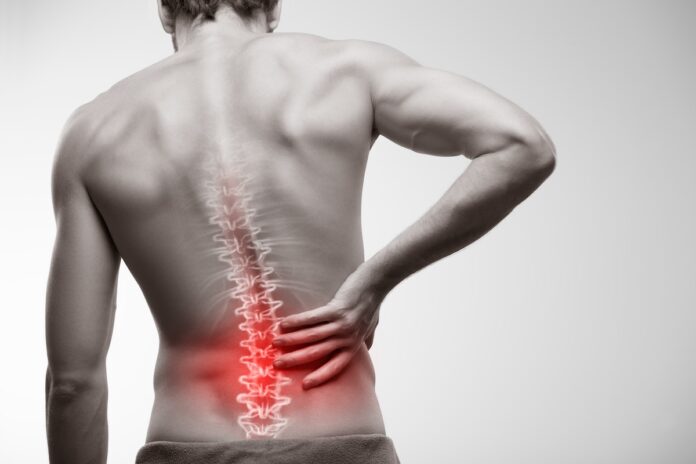A new study published in CMAJ (Canadian Medical Association Journal) on low back pain has both good and bad news for people with this condition.
Low back pain is a major cause of disability around the globe, with more than 570 million people affected. In the United States alone, health care spending on low back pain was $134.5 billion between 1996 and 2016, and costs are increasing.
“The good news is that most episodes of back pain recover, and this is the case even if you have already had back pain for a couple of months,” said author Dr. Lorimer Moseley, a professor of physiotherapy and pain management at IIMPACT in Health, University of South Australia, Adelaide, Australia. “The bad news is that once you have had back pain for more than a few months, the chance of recovery is much lower. This reminds us that although nearly everyone experiences back pain, some people do better than others, but we don’t completely understand why.”
The systematic review and meta-analysis, conducted by an international team of researchers, included 95 studies with the goal of understanding the clinical course of acute (< 6 weeks), subacute (6 to less than 12 weeks) and persistent (12 to less than 52 weeks) low back pain. For people with new back pain, pain and mobility problems lessened significantly in the first 6 weeks, but then recovery slowed. This study filled a gap in a 2012 paper from the same research team, with new findings showing that many people with persistent low back pain (more than 12 weeks) continue to have moderate-to-high levels of pain and disability.
“These findings make it clear that back pain can persist even when the initial injury has healed,” said Dr. Moseley. “In these situations, back pain is associated with pain system hypersensitivity, not ongoing back injury. This means that if you have chronic back pain — back pain on most days for more than a few months — then it’s time to take a new approach to getting better.”
He notes that there are new treatments based on training both the brain and body that “focus on first understanding that chronic back pain is not a simple problem, which is why it does not have a simple solution, and then on slowly reducing pain system sensitivity while increasing your function and participation in meaningful activities.”
The authors state that identifying slowed recovery in people with subacute low back pain is important so that care can be escalated and the likelihood of persistent pain reduced. Further research into treatments is needed to help address this common and debilitating condition, and to better understand it in people younger than 18 and older than 60 years.
“The clinical course of acute, subacute and persistent low back pain: a systematic review and meta-analysis” is published January 22, 2024.


